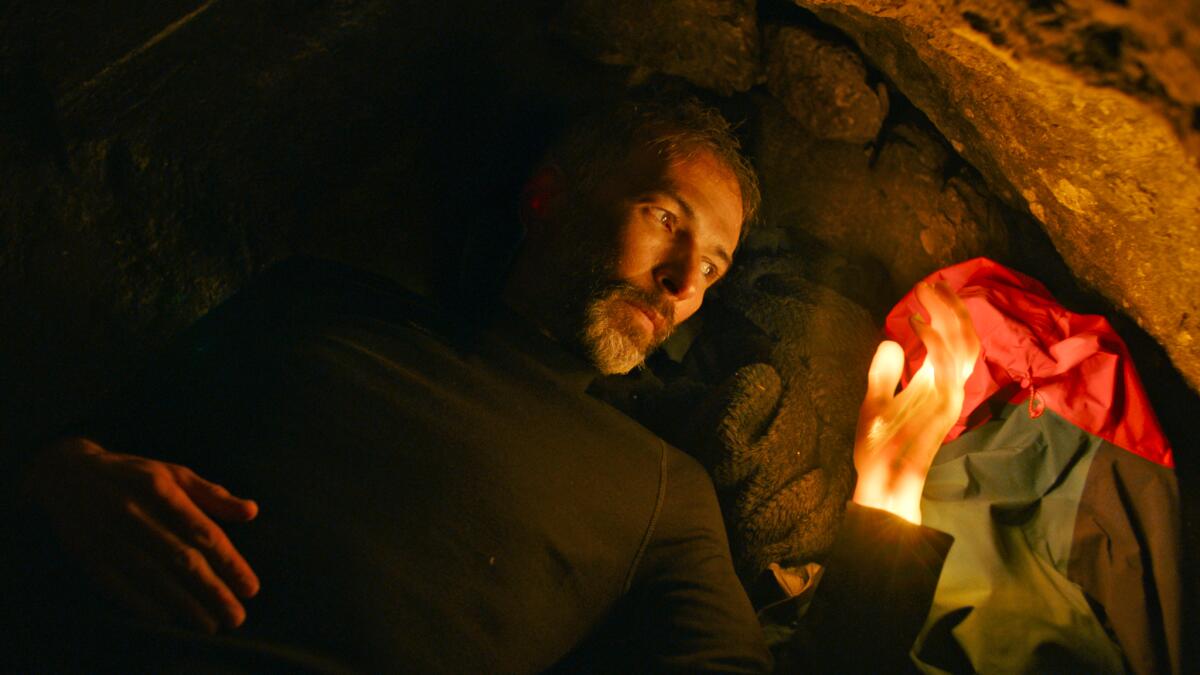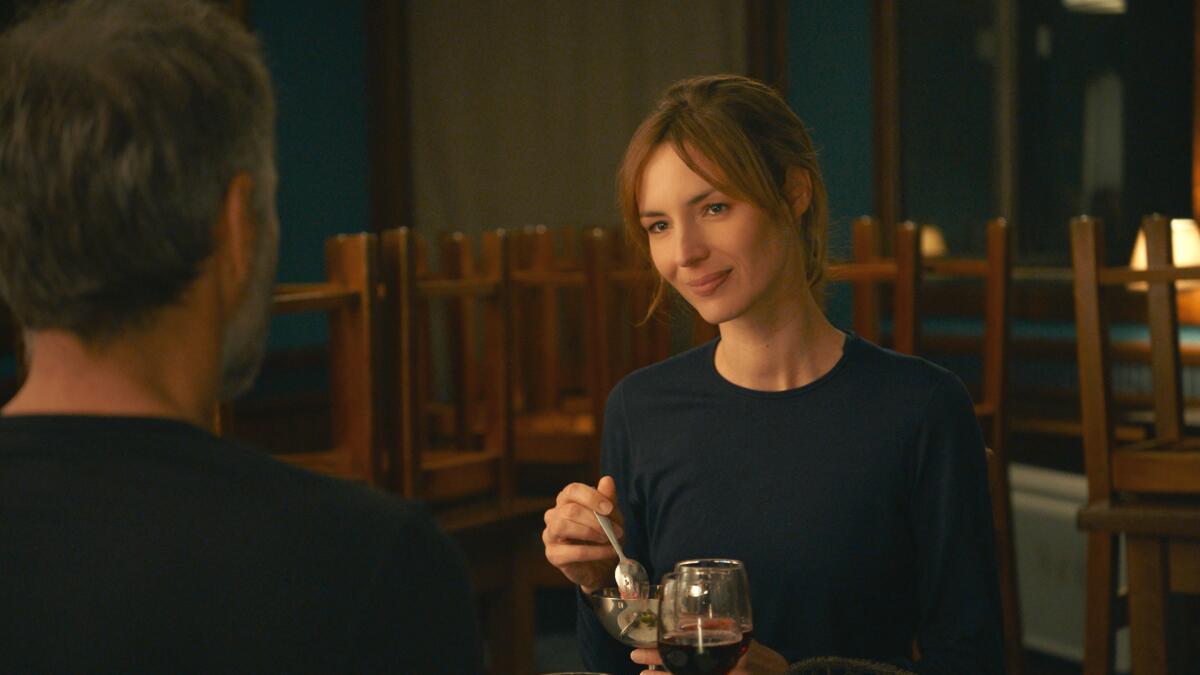Review: In âThe Mountain,â a quietly driven climber searches for something higher

In 1923, when asked why he wanted to scale Mt. Everest, British climber George Mallory famously answered, âBecause itâs there.â
That existential response might also help explain the life-altering choice by a Parisian robotics engineer to ascend the mighty peaks of the French Alps in âThe Mountain,â a curiously compelling look at one manâs quiet obsession.
Pierre, played by the filmâs director, Thomas Salvador (he also co-wrote with NaĂŻla Guiguet), is a seemingly solitary soul attending a work conference near Chamonix, a picturesque resort town at the base of soaring Mont Blanc. Although the reserved, pensive and dignified Pierre appears at peace with his co-workers, we learn little about his current life or background, both at first and as the film progresses. Though this conceit may frustrate some viewers, it gives this fable-like tale a wider berth for interpretation.
When the conference ends, Pierre decides to stay on and camp out for a bit on the Mont Blanc mountain range. But soon after, about to board the train back to Paris, something stops him from going home. He calls into work âsickâ and remains to explore the Alps, pitching his wobbly tent in a steep and snowy stretch along with several other intrepid mountaineers.
Pierre seems a fairly capable, unflappable climber. But the vast and eerie remoteness of his sky-high locale (gorgeously shot by Alexis Kavyrchine), plus Pierreâs plan to reach a melting mountaintop glacier, suggests the story may veer into action-survival territory Ă la such films as âWild,â âInto the Wildâ or last yearâs Naomi Watts drama âInfinite Storm.â But âThe Mountainâ is far more elliptical than that. And, although Pierreâs intentions remain debatable, the story becomes a subtle treatise on solitude, ecology and, it would seem, following your bliss.

Pierreâs relationship with LĂŠa (a luminous Louise Bourgoin), an increasingly friendly local chef he meets along the way, is one of the pictureâs few concessions to a more traditional story. It infuses the journey with a welcome if low-key emotional dimension as Pierre and LĂŠa, a single mother who may also be grappling with loneliness, develop a gentle attraction.
A less successful attempt at a subplot finds Pierre taking a minor spill on the mountain. Itâs enough to require a helicopter rescue and a hospital visit, but it feels like a perfunctory segue.
An intriguing, enigmatic turn into sci-fi territory also crops up as Pierre discovers a group of small, light-bearing entities living in the nooks and crannies of the mountains. These beings (Salvador calls them âglimmersâ), which resemble slinking, sequined bean bags, end up sharing their capacity to glow with Pierre as they make physical contact. What these strange creatures exactly represent may be in the eye of the beholder, though cautionary hints about climate change and the eroding Alps provide a clue.
It all leads to a trippy interlude in which a gleamingly lit Pierre gets sucked into an icy mountain and floats around amorphously within its walls. The homegrown-style visual effects here lend the sequence a comfortably low-tech appeal that remains until the end as Pierre, now frequently aglow, ostensibly comes to terms with his existence.
Although âThe Mountainâ moves at a somewhat, er, glacial pace, it becomes a more immersive than tiring experience. And if a few too many moments go underexplained (how did Pierreâs mother and brothers get to the Alps so fast for their brief, intervention-like visit?), Salvador infuses the film with a surreal enough tone to justify his austere narrative approach.
'The Mountain'
In French, with English subtitles
Not rated
Running time: 1 hour, 53 minutes
Playing: Opens Sept. 15 at Laemmle Glendale
More to Read
Only good movies
Get the Indie Focus newsletter, Mark Olsen's weekly guide to the world of cinema.
You may occasionally receive promotional content from the Los Angeles Times.










